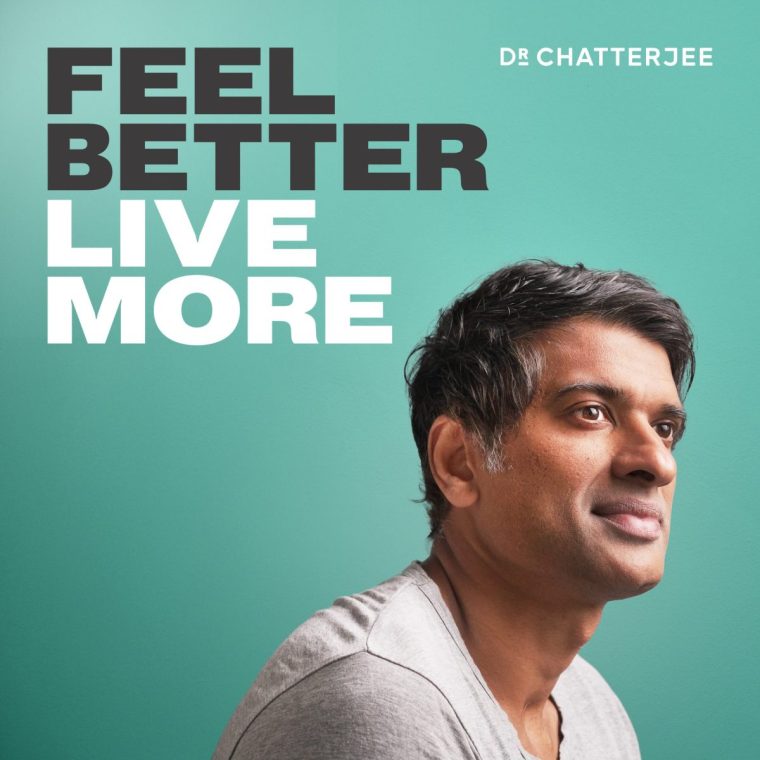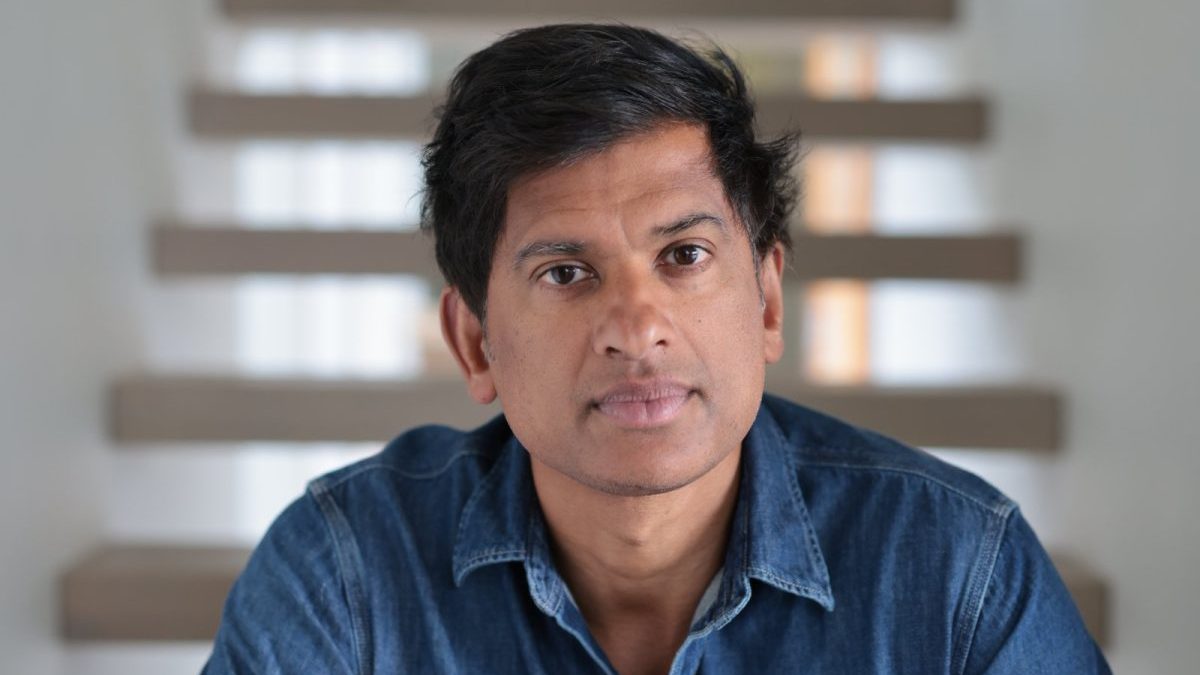The most listened-to doctor in Europe talks about the real problem with the NHS, the importance of lifestyle-driven health, and his refusal to be divisive
Dr Rangan Chatterjee remembers the day he realised something fundamental was broken. Early in his GP career in Oldham, Manchester, after a long NHS clinic during which he had seen nearly 50 patients, he sat staring at the names on his computer screen and asked himself how many he had really helped.
“Hand on heart, I thought, maybe 20 per cent,” he says. “For the other 80 per cent, sure, I’d done something – I’d given a prescription, referred them, sent them for a scan – but I knew they’d be back. We hadn’t got to the root cause.”
It wasn’t a failure of effort or empathy; it was a mismatch between a system designed for acute crises and a modern reality dominated by chronic, lifestyle-driven conditions. And that stark truth stayed with him.
“After seeing that list, I thought, I can’t do this for the next 40 years,” he recalls.
Rather than opt out of medicine altogether, Dr Chatterjee began immersing himself in the world of lifestyle medicine, attending conferences, interviewing experts and, eventually, in 2018, launching a podcast to bring those conversations to a wider audience.
Seven years and nearly 600 episodes later, Feel Better, Live More has passed 300 million listens and become the number one health podcast in Europe on multiple metrics. The guest list is wide and eclectic: Holocaust survivor and psychologist Edith Eger; The Let Them Theory author and coach Mel Robbins; psychotherapist Julia Samuel; public speaker and former monk Jay Shetty… It is a show built on range, curiosity and, crucially, practicality.
“I’m very conscious, in a world where people say health and wellness is the reserve of the middle classes, of keeping things accessible,” says Dr Chatterjee. “Sure, there are some things that are expensive, but I’m always thinking about those who have little time and money. Sunlight, a walk, a breathing practice – most of what I talk about on the show is free.”
Dr Chatterjee is speaking to me on Zoom from the same home studio where he interviews his guests. When we talk, he has just released the first episode of the new series – a conversation about successful relationships with philosopher Alain de Botton – after taking the show off-air for its annual summer break.
In the hyper-competitive world of podcasting, a six-week pause is almost heretical, but Dr Chatterjee treats it as a principle. “There’s this message in the modern world that you can’t stop – that if you pause, someone else will take your slot,” he says. “I won’t subscribe to that. I think that’s why we’ve got a stressed-out, burnt-out culture.”
That refusal to be led by urgency or metrics runs through the way he makes the show. If Feel Better, Live More resonates, he thinks it’s because the intention has never been commercial. “Lots of people start podcasts to make money, but I genuinely started mine to help people,” he says. “For the first two years I didn’t even take sponsorship.”
The process remains stubbornly handmade. “I still hand-pick every guest. I don’t have a booking agent. I do all the research myself. People have teams that hand them notes – that would save me time, but I realised I don’t want my time saved. I enjoy immersing myself in a guest’s life. It leads to a much more intimate conversation.”
Keeping control also lets him platform differing ideas without forcing consensus – or pretending that wellness is a monolith.
“I’ve had people on who are proponents of a plant-based diet and others who are proponents of a ketogenic diet,” he says. “They both have evidence. We all see the world differently.”
 Dr Chatterjee’s podcast has been hugely successful
Dr Chatterjee’s podcast has been hugely successful
And he doesn’t need to agree with someone to have them on the show. “I don’t say, ‘I disagree,’ which is inflammatory. I’ll say, ‘That’s interesting; I see it slightly differently — my perspective is this.’ It keeps things warm. It’s not about me or my guest being right; it’s about exploring ideas together.”
That commitment to nuance also means resisting the algorithm’s siren call. “People have told me, ‘Be more divisive and the videos will fly,’” he says. “You blow up on YouTube by being more controversial. But if the cost is my integrity, I can’t sit with that.”
Holding that line in public brings its own scrutiny, which leads to a more personal question: with millions listening, does he feel obliged to be the perfect health role model?
“I used to feel the pressure to be a certain way,” he admits, recalling a transatlantic flight where the cabin crew told him they’d been watching what he ate. “But, you know, if someone saw me having a croissant one day, who cares? I’m a human being. I don’t claim to be perfect.”
He still has a sweet tooth and sometimes scrolls before bed, but otherwise tries to live healthily on the whole. “But I don’t feel I need to prove anything to anyone. I’m no one special – just a dad, a husband, a doctor trying to make my way in the world.”
Dr Chatterjee was raised in an Indian immigrant family where medicine was normalised – his father came to the UK in 1962 as part of a drive to recruit doctors into the NHS. “When you grow up in that world, becoming a doctor is just the norm,” he says.
He also saw what care looked like up close – his father with patients, his mother’s instinct to look after others. “I genuinely cared about people too. I’ve always wanted to help.”
But helping within the NHS started to feel impossible. “The NHS was set up in a different era for a different set of problems,” he says. “The whole model is about diagnosing disease and treating it with drugs. It’s very good at that. But creating health and diagnosing disease are two very different things.
“We think the solution is to pour more money into the NHS. I think we need a different approach – one that shifts the focus towards cultivating health through lifestyle, which in turn would make a lot of downstream symptoms disappear.”
By the same token, he argues that many people who go to their GP would be better off seeing a good health coach. “That’s not anti-GP – we just need to reserve GP time for what GPs are very good at.”
But what with the NHS being such a “political hot potato”, he has stopped waiting for systemic reform. “I’m tired of waiting for the NHS to change. I think we can tackle this from the outside.”
And he is doing his bit in more ways than one: at least 2,000 doctors are now prescribing Feel Better, Live More to their patients. “They’ve only got 10 minutes. So they’ll say, ‘Listen to episode 340 and come back in four weeks.’” He smiles. “I can’t tell you how happy that makes me.”
‘Feel Better, Live More’ is available on all major podcast providers

